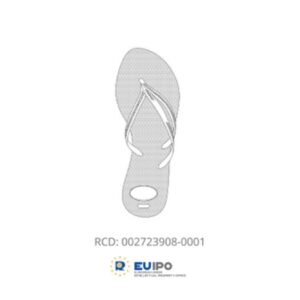In 2022, Lidl disputed that Tesco’s use of ‘Clubcard prices’ sign which comprised of a yellow circle on a blue square was intentionally used and designed to make consumers contemplate that Tesco’s discounted goods were the equivalent of Lidl’s ordinary usual goods. Lidl possesses two registered trade marks, one of which includes the text LIDL with the Mark and the other which it did not (Wordless Mark). However, the issue was that Lidl never used their Wordless Mark in the United Kingdom and only used their Mark with Text. Whereas Tesco introduced their Clubcard prices sign as a marketing strategy since September 2020 and only used the sign with the words included, never on its own.
Lidl commenced proceedings against Tesco and claimed that Tesco’s sign infringed their trademarks and amounted to passing off and copy right infringement. In June 2022 the court made an order to strike out. Nevertheless, Tesco made an appeal to the Court of Appeal on the grounds that the court had failed to apply the correct test and consider that bad faith was a developing area of law.
Tesco alleged that Lidl attempted to register their Wordless Mark several times from 2002 to 2021 and this was done in bad faith under Trade Marks Act 1994 Pt I s.3(6). They had two reasons underpinning this allegation- firstly, that Lidl never used their Wordless Mark in the UK, and it was the first time they attempted to register it in 27 years and secondly the several reregistration attempts were carried out solely to escape the “non-use” provisions. Tesco disputed that Lidl’s attempt to register their wordless mark was exclusively done in an attempt to use it as a legal weapon against third parties. However, it was found that Lidl was clearly seeking an unjustifiably broad protection which may abuse the trademark system, however whether this constituted to bad faith was all dependent on Lidl’s intentions. Subsequently, the Court of Appeal held that Tesco’s defence and counter claim had a ‘real prospect of success’ and allowed the appeal, but what does this mean for trade mark owners?
On 7th of February 2023 the two supermarket giants dispute carried on to London’s High Court, once again over the use of the yellow circle on a blue square, accusing Tesco of ‘deception’. Benet Brandreth KC acting on behalf of Lidl, argued that Tesco’s own conducted customer research illustrates that some respondents thought that the Clubcard prices were the similar to Lidl, Brandreth continued to argue that this was a clear illustration that consumers were incorrectly believing that they were buying goods that were at a lower price than they were.
Brandreth went even further to claim that they are not bringing this claim forward merely for the purposes of customer confusion but for the link that Tesco was creating between Tesco’s Clubcard promotions and Lidl’s reputation. Namely that Tesco was attempting to once again create an idea that Lidl is a cheaper supermarket compared to Tesco.
However, Hugo Cuddigan KC acting on behalf of Tesco rejected this argument, he stated that Lidl’s logo was not ‘recognised as significantly artistic’ for it to be a protected work. He described that logo as kindergarten shapes with not artistic merit. Nevertheless, the similarity was further supported by two members of public, where one posted a Twitter comment stating that the Tesco Clubcard promotions reminded him of Lidl, while the other emailed Lidl over the branding. It was added that this similarity was ‘very unfair’ and ‘beyond mimicry’.
Due to Lidl creating lookalike products and goods like their biscuits named Neo which are similar to Oreos and their cheese named Valley Spire, which is once again similar to Cathedral City, Cuddigan used this argument to dispute that ‘Lidl are suspicious of Tesco’s behaviour because that is how they themselves behave’.
The trial still continues.
If you would like to discuss protection of your brand, please get in touch with the Trademarkroom team today.











